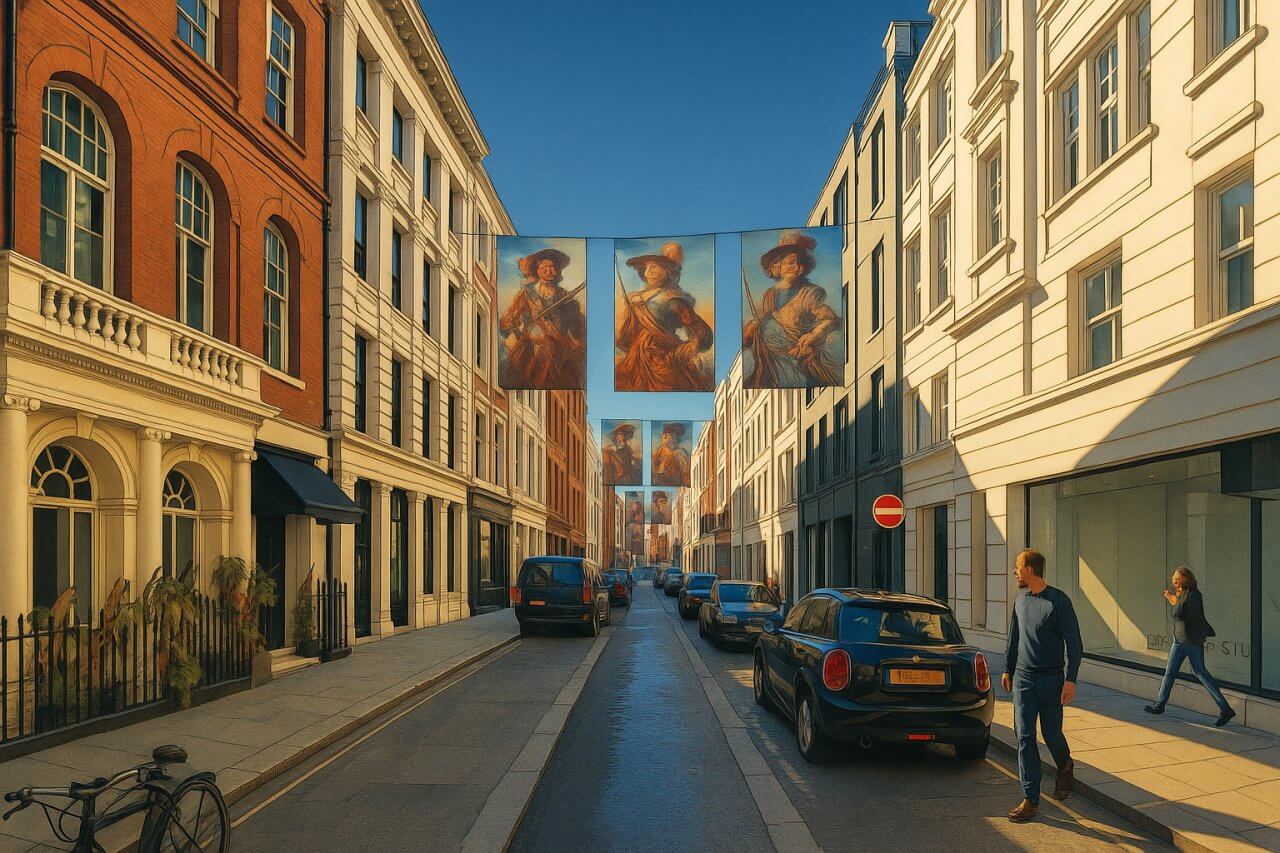
Cork Street, London
Cork Street, Mayfair – Art, Elegance, and Urban History
Explore Cork Street in London's West End - home to top art galleries, historic charm, luxury properties, and cultural highlights in the heart of Mayfair.Cork Street is a short but culturally significant street located in the heart of Mayfair, within the City of Westminster, London. Renowned for its concentration of contemporary art galleries, its aristocratic history, and its upmarket character, Cork Street has long been associated with elegance and artistic sophistication. Though small in size, the street packs a rich narrative that reflects broader stories of London's development and cultural life.
Location and Layout
Cork Street is a one-way road stretching approximately 160 metres (525 feet) in length. It begins at its southeastern junction with Burlington Gardens and runs northwestward to Clifford Street. Vehicular traffic flows in that same southeast-to-northwest direction.
Historical Background
The street dates back to the early 18th century and was developed as part of the Burlington Estate, an area named after the Earl of Burlington. Cork Street took its name from Richard Boyle, the 1st Earl of Cork (1566–1643), whose descendants, the Earls of Burlington, played a central role in the planning and development of Mayfair.
The name “Cork” is pronounced as it is spelled: Cork, with a hard “k” sound at the end. In the International Phonetic Alphabet (IPA), it is rendered as /kɔːk/. 
The Character of Cork Street
Today, Cork Street is globally recognised for its association with the London art scene. Since the 1920s, it has served as a hub for avant-garde art, hosting influential galleries that have introduced modern and contemporary works to the British public. It is not a bustling commercial street like Bond Street nearby, but rather a quiet, refined stretch known for its cultured clientele and subdued elegance.
The buildings along the street are a mix of Georgian and Edwardian architecture, often with art deco flourishes, giving the area a classic yet timeless aesthetic. Most premises are occupied by galleries, with some office spaces and a few residential units discreetly located above street level.
Art and Attractions
Cork Street is lined with prestigious galleries that showcase everything from early 20th-century masters to emerging contemporary artists. Notable galleries on or very near the street include:
- Waddington Custot – A leading gallery for post-war and contemporary art.
- The Redfern Gallery – One of London’s oldest dealer galleries, established in 1923.
- Stephen Ongpin Fine Art – Specialising in Old Master and 19th-century drawings.
Additionally, Cork Street is only a stone’s throw from the Royal Academy of Arts on Burlington Gardens and from Savile Row, the epicentre of British bespoke tailoring.
Property and Real Estate
Due to its prestigious location in Mayfair and cultural significance, real estate on Cork Street commands premium prices. As of early 2025, commercial gallery spaces have been advertised at over £4,000 per sq ft (£43,056 per sq m), while residential flats in the vicinity typically range between £2,500–£3,500 per sq ft (£26,910–£37,674 per sq m), depending on finish, view, and floor level.
Residential units here are rare but usually come in the form of compact, luxury apartments ranging from 600 to 1,200 sq ft (56 to 111 sq m). Prices reflect the exclusivity of the street, its central position, and proximity to London’s most high-end amenities.
Transport Links
Nearest London Underground Stations
- Green Park Station – Served by the Jubilee, Piccadilly, and Victoria lines (approx. 5-minute walk).
- Oxford Circus Station – Served by the Central, Victoria, and Bakerloo lines (approx. 8-minute walk).
- Piccadilly Circus Station – Served by the Piccadilly and Bakerloo lines (approx. 9-minute walk).
Bus Connections
The nearest bus stops are located on Regent Street, Piccadilly, and Oxford Street, all within a short walk from Cork Street. These routes offer convenient connections to Central London destinations and beyond:
- Bus 9, 14, 19, 22, 38 – East–West routes serving Trafalgar Square, Knightsbridge, Chelsea, and more.
Fun Fact
In the early 20th century, Cork Street played a major role in introducing modernism to Britain. In fact, it was on this street that the works of Pablo Picasso, Paul Klee, and Max Ernst were first displayed to a curious and sometimes scandalised British audience. Virginia Woolf, who was part of the Bloomsbury Group, famously visited galleries here, helping to cement its cultural cachet.
Quick Facts
- Location: Mayfair, City of Westminster, London
- Length: Approx. 160 metres (525 feet)
- Traffic Direction: One-way from Burlington Gardens (SE) to Clifford Street (NW)
- Historical Origin: Early 18th century, named after the 1st Earl of Cork
- Pronunciation: Cork /kɔːk/
- Key Features: Renowned art galleries, Georgian and Edwardian architecture
- Real Estate (2025): £2,500–£4,000 per sq ft (£26,910–£43,056 per sq m)
- Nearest Tube Stations: Green Park, Oxford Circus, Piccadilly Circus
- Nearby Bus Stops: Regent Street, Piccadilly, Oxford Street
- Interesting Fact: Hosted early UK exhibitions of Picasso and Klee
Map of Cork Street, London

Painting of Cork Street, London (View image in full size)